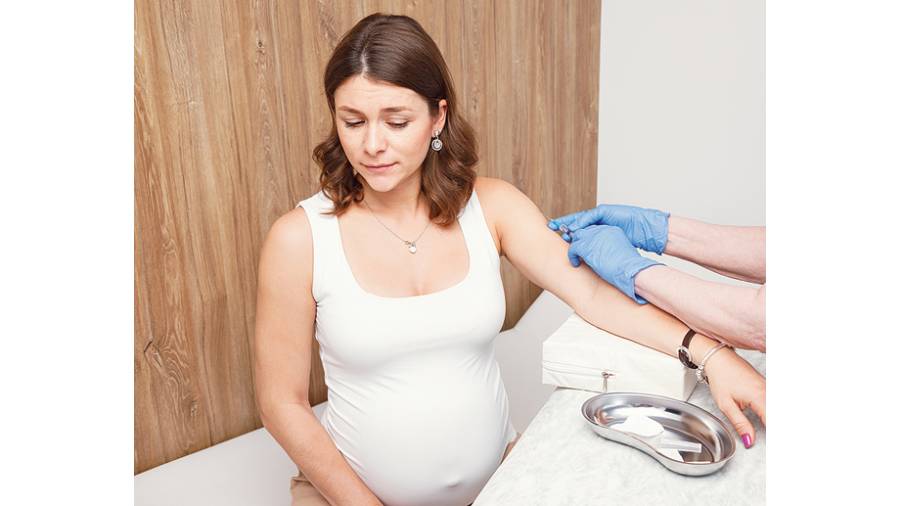The commonly asked questions by people regarding pregnancy during Covid-19 have been recently addressed by the Royal College of Obstetricians and Gynaecologists (RCOG) and Royal College of Midwives (RCM), London. They have thrown light on the issues that have been worrying people. Here is what you wanted to know about Covid-19 vaccinations in the context of pregnancy and breastfeeding but did not know who to ask:
# On the safety of taking the vaccine during pregnancy and breastfeeding:
The recommendations from the Ministry of Health and Family Welfare, Government of India, state that pregnancy and lactation are contraindication to the Covid-19 vaccination. This is based on the principle that there is no date available to ensure safety in pregnancy. Both the vaccine manufacturers in India also state the same in their product literature. This is also relevant from the point of view that vaccination in India was started on a “trial mode”.
The testing of Covid-19 vaccine in pregnant and breastfeeding women have not yet taken place in the initial trials across the globe. However, there have been no reports of adverse effects in women who took the vaccine accidentally, before knowing that they were pregnant. The decision of taking the vaccine during pregnancy still remains a personal one. However, your doctor will definitely help you make an informed choice about whether to get the Covid-19 vaccine if you are already pregnant or planning a pregnancy, either naturally or by treatment.
# Whether the vaccine could be especially recommended for specific groups of women during or before planning pregnancy:
Covid-19 vaccination should be offered to the following groups of women as a priority, before and during pregnancy:
1. Those with high-risk medical conditions and who have a greater risk of severe illness from Covid-19 infection.
2. Healthcare or social care frontline workers who are at increased risk of contracting Covid-19 during or before pregnancy.
3. People considered at high risk of Covid-19 because of health and personal factors that include age (more than 35 years), obesity (BMI higher than 30kg/m2) and associated health conditions like diabetes, hypertension, heart disease, asthma and immunity-related problems.
# On the benefits of Covid-19 vaccine during pregnancy:
Vaccination is effective in preventing Covid-19 infection during pregnancy. Studies have shown that hospital admission and severe illness with Covid-19 infection may be more common in pregnant women. This is more so for those in the late stage or third trimester of pregnancy, and pre-term birth is three times more likely, which can affect the long-term health of the newborn. Hence, Covid-19 vaccination can protect both mother and her newborn from many associated complications.
# On whether Covid-19 vaccination can cause any harm to pregnant women:
Covid-19 vaccines do not contain live coronavirus and, therefore, cannot result in infection in pregnant women. Moreover, they do not contain any additional ingredients that are harmful to pregnant women and their unborn babies.
Since other non-live inactivated and toxoid-based vaccines (whooping cough, influenza and tetanus) are considered to be safe for pregnant women and their unborn babies, the same principle applies for Covid-19.
# On the risks of Covid-19 vaccination:
There is still limited evidence about the safety of the Covid-19 vaccines on pregnant women as they were not included in initial trials. However, data from the US V-safe registry is reassuring in this regard, as over 35,000 pregnant women have had a Covid-19 vaccine (mRNA vaccines by Pfizer BioNTech or Moderna), and have not raised any safety concerns. Therefore, the recent recommendations suggest that Covid-19 vaccines should not be withheld from pregnant individuals.
Since vaccines used in India are of different types (Covishield is an adenovirus vector vaccine and Covaxin is an inactivated/killed whole virus vaccine), one should not expect similar outcomes as with the mRNA vaccines. Hence, WHO has suggested that only pregnant women at a higher risk of contracting the virus and those who are likely to develop serious complications of Covid-19 infections should be vaccinated.
There is no evidence as yet that the vaccine can harm either the mother or her newborn. However, it remains to be seen whether maternal vaccination can confer passive immunity to the newborn. There are still concerns about the long-term safety of the vaccine as no such evidences are available. Nevertheless, the short-term benefits far outweigh the long-term limitations, if any.
# On the best time to take the Covid-19 jab during pregnancy:
The Joint Committee on Vaccination and Immunisation (JCVI) advises that women do not need a pregnancy test before vaccination, and that women planning a pregnancy do not need to delay pregnancy after vaccination.
The vaccine should work irrespective of the stage of pregnancy. Since the Covid-19 infection creates more serious complications in late stage (third trimester) of pregnancy, some women may choose to delay their vaccine until after the first 12 weeks (first trimester), which are most important for the baby’s development. They plan to have the first dose at any time from 13 weeks onwards and complete the second dose much before 28 weeks.
If you are at a higher risk of contracting Covid-19 or developing serious complications associated with the disease, consider getting vaccinated. You should discuss the benefits and risks of vaccination, including possible side-effects, with a healthcare professional before making your final decision on this emotive but practical issue during pregnancy.

Dr Gautam Khastgir MD, FRCS, FRCOG, FICOG, is the founder medical director of BIRTH and consultant in reproductive medicine and surgery











